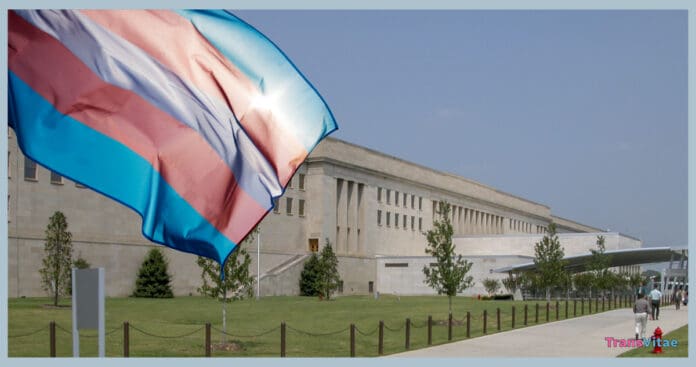In a significant win for transgender military members and their advocates, a federal appeals court on Monday rejected a request by the Trump administration to enforce its ban on transgender service in the U.S. military—at least for now.
The decision from a three-judge panel of the San Francisco-based 9th U.S. Circuit Court of Appeals leaves in place a lower court’s injunction issued last week by U.S. District Judge Benjamin Settle in Tacoma, Washington. Judge Settle’s order temporarily blocks the administration’s efforts to reinstate a policy that would identify and discharge transgender service members solely based on their gender identity.
The Trump administration had asked the appeals court for what’s known as an “administrative stay” of the injunction—a legal move that would have allowed the ban to take effect while the appeals process played out. On Monday, the court denied that request.
The decision means transgender individuals currently serving in the military can continue to do so without fear of being discharged under the proposed policy—at least while the case proceeds.
The Department of Defense declined to comment on the ruling. The Justice Department also did not immediately respond to requests for a statement.
“A Win for Basic Human Dignity”
Lambda Legal and the Human Rights Campaign Foundation, two of the civil rights groups representing seven active-duty transgender plaintiffs in the case, applauded the 9th Circuit’s ruling.
“The court’s refusal to reinstate this harmful ban is a win for basic human dignity,” the organizations said in a joint statement. “We will continue to fight for our clients and all transgender servicemembers who serve our country selflessly and with distinction and honor.”
The lawsuit, filed by attorneys from the prominent law firm Perkins Coie, challenges the Trump-era military policy on the grounds that it violates constitutional rights to equal protection and due process. The firm has long supported LGBTQ+ rights and is among several that the former president has publicly criticized in recent years.
Earlier this month, a separate federal judge blocked large portions of a Trump executive order that would have stripped security clearances from Perkins Coie attorneys and rolled back their access to federal officials—actions widely viewed as retaliatory.
Judge Settle: Ban Causes Irreparable Harm
In his March 27 ruling, Judge Settle wrote that the military had functioned effectively for four years under a policy that allowed transgender people to serve openly. He concluded that halting the Trump administration’s ban was necessary to prevent serious harm.
“Any claimed hardship the military may face in the meantime pales in comparison to the hardships imposed on transgender service members,” wrote Settle, who was appointed to the bench by Republican President George W. Bush.
That sentiment struck a chord with many in the transgender and veteran communities who have voiced frustration over repeated attempts to roll back their hard-won rights.
“This isn’t just about policy,” said Samira Grant, a transgender Navy veteran and advocate. “It’s about our lives, our families, and our ability to serve with integrity.”
Conflicting Court Actions, Uncertain Path Ahead
While Monday’s decision from the 9th Circuit is a clear rebuke to the Trump administration’s efforts, legal observers warn the issue is far from settled. In a similar case last week, the D.C. Circuit Court of Appeals did grant a temporary stay allowing the ban to take effect, although it signaled that it might quickly reverse that decision if the military begins taking disciplinary action against transgender personnel.
This split in rulings between appellate courts could set the stage for a broader legal showdown, potentially escalating all the way to the U.S. Supreme Court.
If the Trump administration continues to push the issue, its next step would likely be to appeal the 9th Circuit’s denial of the stay to the Supreme Court. Legal experts suggest the Court could either allow the lower court ruling to stand or intervene and hear the case directly, which would have national implications.
In the meantime, advocacy groups are urging transgender service members to remain informed and connected with legal support.
“This moment is a reprieve, not a resolution,” said Alejandra Voss, legal director at the Transgender Military Defense Network. “We must stay vigilant and unified. Your service matters, and so does your right to serve as who you are.”


